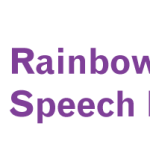Is my Child a Fussy Eater or a Problem Feeder?
We all have preferred tastes- even adults have things they just won’t eat due to taste and texture. Most toddlers start developing a strong sense of self around 18 months and start asserting independence, making choices and that includes what they will and won’t eat. There are also primal instincts of not wanting to eat anything new as it might be dangerous. Children at this age can also start to develop a fear of new foods and a heightened awareness of new tastes. Despite certain restrictions in what they will eat, “normal” picky eaters will still eat enough of a variety across the main food groups (fruit and vegetables, carbohydrates, proteins) to maintain an overall healthy diet. “Normal” fussy eating tends to balance over time without any intervention Ernsperger & Stegen-Hanson, 2004 Rowell & McGlothlin, 2015.
However, there are certain criteria we as speech pathologists look out for to determine if a child might be a problem feeder that requires some further investigation and ongoing therapy. If your child demonstrates one or more of the characteristics below a feeding assessment is recommended.
- They eat less than 20 foods
- Restricted diet to one or two food groups e.g. only eats carbohydrates
- Refuses to eat an entire category of foods e.g. no meat, fruit or vegetables.
- Only eats soft or pureed foods- not chewing or biting
- Only eats foods of a certain shape, colour or texture
- Losing foods out of their diet that they ate previously
- Threat response when new foods are presented- fight, flight, freeze
- Always eats a different meal to the rest of the family
- Vomiting after meals
- Coughing and choking during mealtimes
- Wet gurgly sounding voice after eating and drinking
- Losing a significant amount of food or drink out of their mouth at every mouthful
- Long mealtimes- taking greater than 30 minutes to eat
With mealtime issues there are no quick fixes. It requires a lot of patience, sensitivity, practice and parent involvement. Fussy eating of any degree can cause a lot of stress for parents. A stressed parent at mealtimes often means a stressed child. So take a deep breath and a step back. Don’t let mealtimes become a battle. Parent education and support from a speech pathologist can help. An assessment from an occupational therapist and dietician is also highly recommended. In some situations a psychologist may also be involved to help children who have anxiety with feeding.
Written by Calla Dolton SLP


